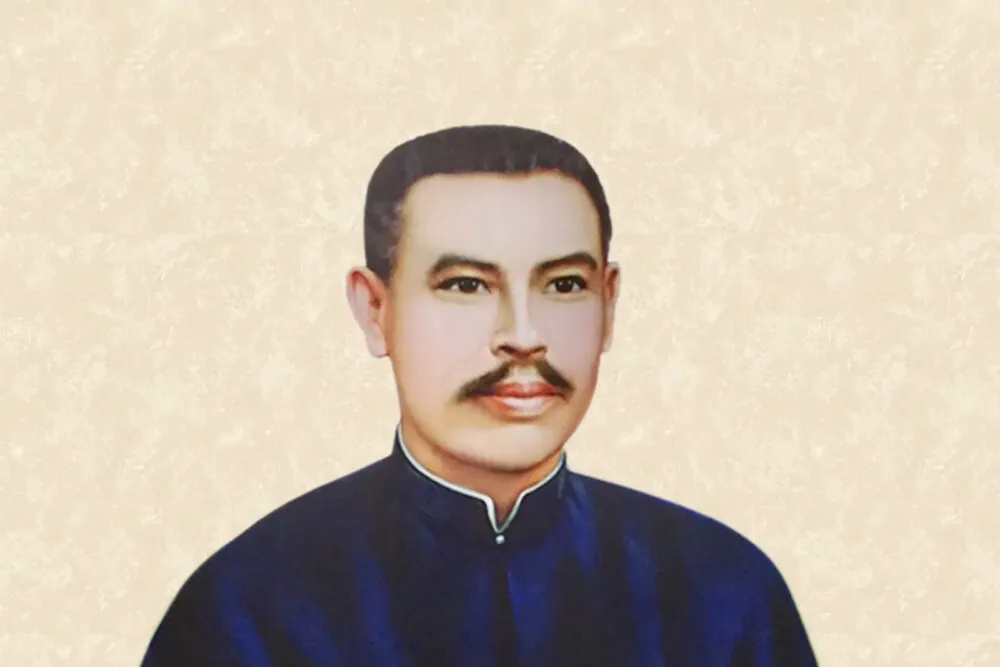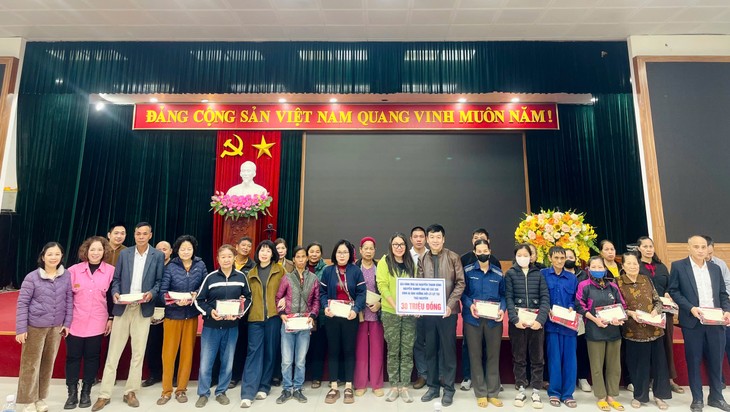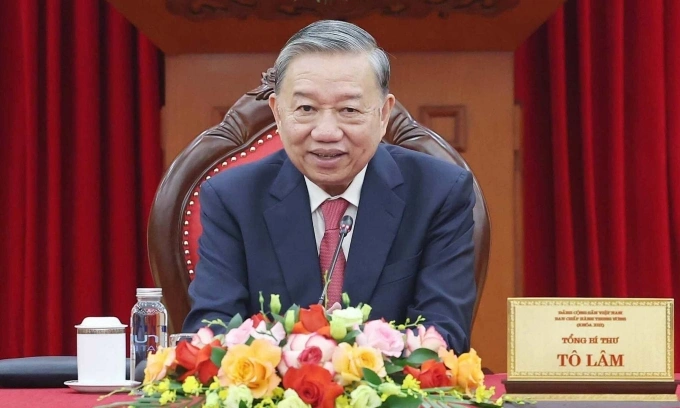|
Sách hiếm - cho đến khi được phổ biến ở các nơi mà "thánh kinh" có mặt. | |||||||||||
|
|
| |||||||||
|
Tìm chữ | |||||||||
|
| |||||||||
| | |||||||||
|
Chủ Trương | |||||||||
| Các đề mục : | |||||||||
» Lưu Trữ Theo Ngày Tháng | |||||||||
| » Các bài về Cải Đạo | |||||||||
| » Các Truyền Nhân Của Chúng Tôi | |||||||||
| » Chữ Quốc Ngữ | |||||||||
| » Hồ sơ CIA giải mật | |||||||||
| » Lạm dụng tình dục | |||||||||
| » GHLM: Lịch Sử và Hồ Sơ Tội Ác | |||||||||
| » Vài Danh Sách Cừu Đen | |||||||||
| » Ý Thức Văn Thân Thế Kỷ 21 | |||||||||
|
| |||||||||
| Các tác giả: | |||||||||
| Bùi Kha | |||||||||
| Charlie Nguyễn | |||||||||
| Hoàng Nguyên Nhuận | |||||||||
| Hoành Linh Đỗ Mậu | |||||||||
| Lý Thái Xuân | |||||||||
| Nguyễn Đắc Xuân | |||||||||
| Nguyễn Mạnh Quang | |||||||||
| Nguyễn Văn Thịnh | |||||||||
| Nguyễn Văn Thọ | |||||||||
| Thiên Lôi | |||||||||
| Trần Chung Ngọc | |||||||||
| Trần Tiên Long | |||||||||
| Trần Trọng Sỹ | |||||||||
| Các tác giả thân hữu | |||||||||
| |||||||||
| |||||||||
|
| |||||||||
|
Các trang bạn | |||||||||
|
▬ Các kênh Youtubes: ▬ Các Facebooks: ▬ Các websites: | |||||||||
|
website hit counter
|
VN không thể đặt hết các quả trứng trong cùng một giỏ
Subject: ***_Ai_đang_thống_trị_thế_giới_?_Who_rules_the_world?_ Who rules the world? America is no longer the obvious answer
From: Mike Wilson
Date: Thu, May 12, 2016 2:06 pm
Tác giả bài tham luận này là Noam Chomsky, một chuyên gia ngữ học (kiêm triết gia, nhà khoa học nhận thức, nhà sử học, lý luận học, nhà phê bình xã hội, và nhà hoạt động chính trị - SH) tại đại học M.I.T. và là học giả chuyên về chính sách đối ngoại của Mỹ
https://en.wikipedia.org/wiki/Noam_Chomsky
Thật khó có thể nói rằng Mỹ đang cai trị toàn cầu trong khi nó đang bị thách đố cùng lúc tại 3 mặt trận :
1. TQ đang thách đố Mỹ tại Biển Đông và Tây Thái Bình Dương
2. Nga đang thách đố Mỹ tại Ukraine và Syria
3. Al Qaeda và ISIS đang thách đố Mỹ tại Trung Đông
Liệu Mỹ có thể đánh cùng lúc 3 mặt trận và toàn thắng cả 3, để giữ ngôi bá chủ thế giới ?!
VN cần phải thức thời trên bàn cờ chiến lược toàn cầu.
VN không thể đặt cược toàn bộ sinh mệnh dân tộc vào tay Mỹ, hay Nga, hay TQ !!!
VN không thể đặt hết các quả trứng trong cùng một giỏ !!!
nth-fl
_______________________________
Challenged from all sides, the US is losing its tight grip on international power, Noam Chomsky writes, as world public opinion becomes a "second superpower"

Noam Chomsky.
The challenges today: east Asia
Beginning with the “American lake”, some eyebrows might be raised over the report in mid-December 2015 that “an American B-52 bomber on a routine mission over the South China Sea unintentionally flew within two nautical miles of an artificial island built by China, senior defense officials said, exacerbating a hotly divisive issue for Washington and Beijing”.
Those familiar with the grim record of the 70 years of the nuclear weapons era will be all too aware that this is the kind of incident that has often come perilously close to igniting terminal nuclear war. One need not be a supporter of China’s provocative and aggressive actions in the South China Sea to notice that the incident did not involve a Chinese nuclear-capable bomber in the Caribbean, or off the coast of California, where China has no pretensions of establishing a “Chinese lake”. Luckily for the world.
Chinese leaders understand very well that their country’s maritime trade routes are ringed with hostile powers from Japan through the Malacca Straits and beyond, backed by overwhelming US military force. Accordingly, China is proceeding to expand westward with extensive investments and careful moves toward integration.
In part, these developments are within the framework of the Shanghai Cooperation Organization (SCO), which includes the central Asian states and Russia, and soon India and Pakistan with Iran as one of the observers – a status that was denied to the US, which was also called on to close all military bases in the region. China is constructing a modernized version of the old silk roads, with the intent not only of integrating the region under Chinese influence, but also of reaching Europe and the Middle Eastern oil-producing regions. It is pouring huge sums into creating an integrated Asian energy and commercial system, with extensive high-speed rail lines and pipelines.
One element of the program is a highway through some of the world’s tallest mountains to the new Chinese-developed port of Gwadar in Pakistan, which will protect oil shipments from potential US interference.
The program may also, China and Pakistan hope, spur industrial development in Pakistan, which the United States has not undertaken despite massive military aid, and might also provide an incentive for Pakistan to clamp down on domestic terrorism, a serious issue for China in western Xinjiang province. Gwadar will be part of China’s “string of pearls”, bases being constructed in the Indian Ocean for commercial purposes but potentially also for military use, with the expectation that China might someday be able to project power as far as the Persian Gulf for the first time in the modern era.
All of these moves remain immune to Washington’s overwhelming military power, short of annihilation by nuclear war, which would destroy the US as well.
In 2015, China also established the Asian Infrastructure Investment Bank (AIIB), with itself as the main shareholder. Fifty-six nations participated in the opening in Beijing in June, including US allies Australia, Britain and others which joined in defiance of Washington’s wishes. The US and Japan were absent.
Some analysts believe that the new bank might turn out to be a competitor to the Bretton Woods institutions (the IMF and the World Bank), in which the United States holds veto power. There are also some expectations that the SCO might eventually become a counterpart to Nato.
The challenges today: eastern Europe
Turning to the second region, eastern Europe, there is a crisis brewing at the Nato-Russian border. It is no small matter.
In his illuminating and judicious scholarly study of the region, Frontline Ukraine: Crisis in the Borderlands, Richard Sakwa writes – all too plausibly – that the “Russo-Georgian war of August 2008 was in effect the first of the "wars to stop Nato enlargement"; the Ukraine crisis of 2014 is the second. It is not clear whether humanity would survive a third.”
The west sees Nato enlargement as benign. Not surprisingly, Russia, along with much of the Global South, has a different opinion, as do some prominent western voices. George Kennan warned early on that Nato enlargement is a “tragic mistake”, and he was joined by senior American statesmen in an open letter to the White House describing it as a “policy error of historic proportions”.
The present crisis has its origins in 1991, with the end of the cold war and the collapse of the Soviet Union. There were then two contrasting visions of a new security system and political economy in Eurasia. In Sakwa’s words, one vision was of a “Wider Europe", with the EU at its heart but increasingly coterminous with the Euro-Atlantic security and political community; and on the other side there [was] the idea of "Greater Europe", a vision of a continental Europe, stretching from Lisbon to Vladivostok, that has multiple centers, including Brussels, Moscow and Ankara, but with a common purpose in overcoming the divisions that have traditionally plagued the continent”.
Soviet leader Mikhail Gorbachev was the major proponent of Greater Europe, a concept that also had European roots in Gaullism and other initiatives. However, as Russia collapsed under the devastating market reforms of the 1990s, the vision faded, only to be renewed as Russia began to recover and seek a place on the world stage under Vladimir Putin who, along with his associate Dmitry Medvedev, has repeatedly “called for the geopolitical unification of all of "Greater Europe" from Lisbon to Vladivostok, to create a genuine "strategic partnership"”.
These initiatives were “greeted with polite contempt (and fear of Russia's preeminence in Europe. nth-fl) ”, Sakwa writes, regarded as “little more than a cover for the establishment of a "Greater Russia" by stealth” and an effort to “drive a wedge” between North America and western Europe. Such concerns trace back to earlier cold war fears that Europe might become a “third force” independent of both the great and minor superpowers and moving toward closer links to the latter (as can be seen in Willy Brandt’s Ostpolitik and other initiatives).
The western response to Russia’s collapse was triumphalist. It was hailed as signaling “the end of history”, the final victory of western capitalist democracy, almost as if Russia were being instructed to revert to its pre-world war I status as a virtual economic colony of the west (no way !!! nth-fl).
Nato enlargement began at once, in violation of verbal assurances to Gorbachev that Nato forces would not move “one inch to the east” after he agreed that a unified Germany could become a Nato member – a remarkable concession, in the light of history. That discussion kept to East Germany. The possibility that Nato might expand beyond Germany was not discussed with Gorbachev, even if privately considered.
Soon, Nato did begin to move beyond, right to the borders of Russia. The general mission of Nato was officially changed to a mandate to protect “crucial infrastructure” of the global energy system, sea lanes and pipelines, giving it a global area of operations. Furthermore, under a crucial western revision of the now widely heralded doctrine of “responsibility to protect”, sharply different from the official UN version, Nato may now also serve as an intervention force under US command.
Of particular concern to Russia are plans to expand Nato to Ukraine. These plans were articulated explicitly at the Bucharest Nato summit of April 2008, when Georgia and Ukraine were promised eventual membership in Nato. The wording was unambiguous: “Nato welcomes Ukraine’s and Georgia’s Euro-Atlantic aspirations for membership in Nato. We agreed today that these countries will become members of Nato.”
With the “Orange Revolution” victory of pro-western candidates in Ukraine in 2004, State Department representative Daniel Fried rushed there and “emphasized US support for Ukraine’s Nato and Euro-Atlantic aspirations”, as a WikiLeaks report revealed.
Russia’s concerns are easily understandable. They are outlined by international relations scholar John Mearsheimer in the leading US establishment journal, Foreign Affairs. He writes that “the taproot of the current crisis [over Ukraine] is Nato expansion and Washington’s commitment to move Ukraine out of Moscow’s orbit and integrate it into the west”, which Putin viewed as “a direct threat to Russia’s core interests”.
“Who can blame him?” Mearsheimer asks, pointing out that “Washington may not like Moscow’s position, but it should understand the logic behind it”. That should not be too difficult. After all, as everyone knows, “The United States does not tolerate distant great powers deploying military forces anywhere in the western hemisphere, much less on its borders.”
In fact, the US stand is far stronger. It does not tolerate what is officially called “successful defiance” of the Monroe Doctrine of 1823, which declared (but could not yet implement) US control of the hemisphere. And a small country that carries out such successful defiance may be subjected to “the terrors of the earth” and a crushing embargo – as happened to Cuba.
We need not ask how the United States would have reacted had the countries of Latin America joined the Warsaw Pact, with plans for Mexico and Canada to join as well. The merest hint of the first tentative steps in that direction would have been “terminated with extreme prejudice”, to adopt CIA lingo.
As in the case of China, one does not have to regard Putin’s moves and motives favorably to understand the logic behind them, nor to grasp the importance of understanding that logic instead of issuing imprecations against it. As in the case of China, a great deal is at stake, reaching as far – literally – as questions of survival.
The challenges today: the Islamic world
Let us turn to the third region of major concern, the (largely) Islamic world, also the scene of the global war on terror (GWOT) that George W Bush declared in 2001 after the 9/11 terrorist attack. To be more accurate, re-declared.
The GWOT was declared by the Reagan administration when it took office, with fevered rhetoric about a “plague spread by depraved opponents of civilization itself” (as Reagan put it) and a “return to barbarism in the modern age” (the words of George Shultz, his secretary of state).
The original GWOT has been quietly removed from history. It very quickly turned into a murderous and destructive terrorist war afflicting Central America, southern Africa, and the Middle East, with grim repercussions to the present, even leading to condemnation of the United States by the World Court (which Washington dismissed). In any event, it is not the right story for history, so it is gone.
The success of the Bush-Obama version of GWOT can readily be evaluated on direct inspection. When the war was declared, the terrorist targets were confined to a small corner of tribal Afghanistan. They were protected by Afghans, who mostly disliked or despised them, under the tribal code of hospitality – which baffled Americans when poor peasants refused “to turn over Osama bin Laden for the, to them, astronomical sum of $25m”.
There are good reasons to believe that a well-constructed police action, or even serious diplomatic negotiations with the Taliban, might have placed those suspected of the 9/11 crimes in American hands for trial and sentencing. But such options were off the table. Instead, the reflexive choice was large-scale violence – not with the goal of overthrowing the Taliban (that came later) but to make clear US contempt for tentative Taliban offers of the possible extradition of bin Laden.
How serious these offers were we do not know, since the possibility of exploring them was never entertained. Or perhaps the US was just intent on “trying to show its muscle, score a victory and scare everyone in the world. They don’t care about the suffering of the Afghans or how many people we will lose”.
That was the judgment of the highly respected anti-Taliban leader Abdul Haq, one of the many oppositionists who condemned the American bombing campaign launched in October 2001 as “a big setback” for their efforts to overthrow the Taliban from within, a goal they considered within their reach.
His judgment is confirmed by Richard A Clarke, who was chairman of the Counterterrorism Security Group at the White House under President George W Bush when the plans to attack Afghanistan were made. As Clarke describes the meeting, when informed that the attack would violate international law, “the president yelled in the narrow conference room, ‘I don’t care what the international lawyers say, we are going to kick some ass.’” The attack was also bitterly opposed by the major aid organizations working in Afghanistan, who warned that millions were on the verge of starvation and that the consequences might be horrendous.
The consequences for poor Afghanistan years later need hardly be reviewed.
The next target of the sledgehammer was Iraq.
The US-UK invasion, utterly without credible pretext, is the major crime of the 21st century. The invasion led to the death of hundreds of thousands of people in a country where the civilian society had already been devastated by American and British sanctions that were regarded as “genocidal” by the two distinguished international diplomats who administered them, and resigned in protest for this reason. The invasion also generated millions of refugees, largely destroyed the country, and instigated a sectarian conflict that is now tearing apart Iraq and the entire (Mid-East) region. It is an astonishing fact about our intellectual and moral culture that in informed and enlightened circles it can be called, blandly, “the liberation of Iraq”. (Operation Iraq Liberation , or O.I.L., in abbreviation ! nth-fl)
Pentagon and British Ministry of Defense polls found that only 3% of Iraqis regarded the US security role in their neighborhood as legitimate, less than 1% believed that “coalition” (US-UK) forces were good for their security, 80% opposed the presence of coalition forces in the country, and a majority supported attacks on coalition troops. Afghanistan has been destroyed beyond the possibility of reliable polling, but there are indications that something similar may be true there as well. Particularly in Iraq the United States suffered a severe defeat, abandoning its official war aims, and leaving the country under the influence of the sole victor, Iran (the Shiite branch of Islam).
The sledgehammer was also wielded elsewhere, notably in Libya, where the three traditional imperial powers (Britain, France and the US) procured security council resolution 1973 and instantly violated it, becoming the air force of the rebels.(this set up the stage for Russia's involvement in Syria - to prevent the US and NATO from repeating the same farce there ! nth-fl)
The effect (in Lybia) was to undercut the possibility of a peaceful, negotiated settlement; sharply increase casualties (by at least a factor of 10, according to political scientist Alan Kuperman); leave Libya in ruins, in the hands of warring militias; and, more recently, to provide the Islamic State with a base that it can use to spread terror beyond.
Quite sensible diplomatic proposals by the African Union, accepted in principle by Libya’s Muammar Gaddafi, were ignored by the imperial triumvirate (Britain, France and the US), as Africa specialist Alex de Waal reviews. A huge flow of weapons and jihadis has spread terror and violence from west Africa (now the champion for terrorist murders) to the Levant, while the Nato attack also sent a flood of refugees from Africa to Europe.
Yet another triumph of “humanitarian intervention”, and, as the long and often ghastly record reveals, not an unusual one, going back to its modern origins four centuries ago.
(the current crisis in the Middle East was first created by the U.S. and the European powers, by artificially creating the Zionist state of Israel in the midst of Arab land ... years later, the uneven-handed policy of favoring Zionist expansion over Palestinian territory has created the political impasse, wars and human tragedy overflowing to epic proportions with refugees pouring into Europe from the land of conflicts ... it is all man-made, American-made, Euro-made ... even Al Qaeda and ISIS are the products of American and European miscalculations . nth-fl)
This piece was first published on TomDispatch.com. This is part one of an overview essay from Noam Chomsky’s new book on American power and the world, Who Rules the World?
| Đó đây |
|
2026-02-01 - Coi chừng cầu nhầm...thánh! Tên thánh chính thức của Cha Trương Bửu Diệp là Phanxicô - Trong nhiều tài liệu, tên của cha Trương Bửu Diệp thường được ghi là F.X.. Cách viết tắt này có thể khiến người đọc hiểu theo hai hướng: Francisco hoặc Francisco Xavier, bởi cả hai tên
2026-01-31 - Biểu tình khắp nước Mỹ, kêu gọi "không đi làm, không đi học, không mua sắm" - Biểu tình "3 không" khắp nước Mỹ phản đối ICE, nhằm phản đối chiến dịch siết chặt nhập cư của chính quyền Tổng thống Trump. Phong trào này sẽ tiếp tục trong ngày 31-1, do tổ chức 50501 dẫn đầu
2026-01-29 - CDBHB4838. Khi báo chí im lặng, mạng xã hội đương nhiên lên ngôi - 2026-01-28 - Khi "Nhân Quả" bị biến dạng và trở thành công cụ hóa. - Một xu hướng gần đây, khái niệm nghiệp báo (nhân quả) của Phật giáo đang được diễn giải một cách chủ quan, đơn giản hóa quá mức và mang tính chất gieo rắc nỗi sợ hãi. Khái niệm này, vốn là trung tâm 2026-01-28 - Chủ tịch Hội đồng EU đến Việt Nam lúc này để làm gì? - 2026-01-26 - Nịnh Thần Khét Tiếng Việt Nam Trong Lịch Sử - Cần nhất là nhận biết những nịnh thần ngày nay nữa! 2026-01-23 - Nỗi nhục năm 1975 bị nhắc lại năm 1995 - Tổng thống Mỹ Bill Clinton, và Đại tướng West Moreland giải thích cho những người VNCH ly hương muốn kéo dài thù hận. 2026-01-20 - Nhân Tài Đất Việt - Ai là tác giả bộ gõ Unikey trên máy tính? - 2026-01-19 - Kiều bào tại Mỹ chung tay sẻ chia với đồng bào trong nước trước thềm Tết Nguyên đán - Trước đó, do mưa lớn kéo dài, nhiều khu dân cư trên địa bàn đã bị ngập úng, gây thiệt hại về nhà ở, đồ dùng sinh hoạt, hoa màu, ảnh hưởng không nhỏ đến đời sống của người dân,
2026-01-18 - Việt Nam nhận lời mời tham gia Hội đồng Hòa bình Dải Gaza - Việt Nam cho rằng thành lập Hội đồng Hòa bình là bước đi cần thiết để triển khai Kế hoạch Hòa bình Dải Gaza được Hội đồng Bảo an Liên Hợp Quốc thông qua tại Nghị quyết số 2803
|
Trang Sách Hiếm
| ©2012 |

 đều có chữ cái F và X. Để xác minh, Ban tư liệu của Giáo phận Cần Thơ đã trực tiếp đến họ đạo Cùng Phước, nơi cha Trương Bửu Diệp được rửa tội, nhằm kiểm tra sổ rửa tội gốc
đều có chữ cái F và X. Để xác minh, Ban tư liệu của Giáo phận Cần Thơ đã trực tiếp đến họ đạo Cùng Phước, nơi cha Trương Bửu Diệp được rửa tội, nhằm kiểm tra sổ rửa tội gốc
 "Ngày hành động toàn quốc" - bao gồm nhiều hình thức biểu tình, tuần hành và lễ tưởng niệm tại toàn bộ 50 bang và Washington D.C
"Ngày hành động toàn quốc" - bao gồm nhiều hình thức biểu tình, tuần hành và lễ tưởng niệm tại toàn bộ 50 bang và Washington D.C
 nhất là trong thời điểm chuẩn bị đón Tết Nguyên đán. Số tiền ủng hộ 30 triệu đồng được trao tới 30 hộ gia đình, mỗi hộ 1 triệu đồng. Đây là món quà nhỏ nhưng đong đầy tình cảm của những người con Việt Nam ở phương xa
nhất là trong thời điểm chuẩn bị đón Tết Nguyên đán. Số tiền ủng hộ 30 triệu đồng được trao tới 30 hộ gia đình, mỗi hộ 1 triệu đồng. Đây là món quà nhỏ nhưng đong đầy tình cảm của những người con Việt Nam ở phương xa ngày 17/11/2025, trong đó hoan nghênh các quốc gia thành viên tham gia Hội đồng Hòa bình để thúc đẩy hòa bình, cứu trợ nhân đạo và tái thiết Dải Gaza.
ngày 17/11/2025, trong đó hoan nghênh các quốc gia thành viên tham gia Hội đồng Hòa bình để thúc đẩy hòa bình, cứu trợ nhân đạo và tái thiết Dải Gaza.